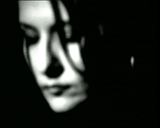
 Author of all texts
about mythology on
these web-pages is
Lidija Bajuk:
Author of all texts
about mythology on
these web-pages is
Lidija Bajuk:
|
lidija.bajuk@posluh.hr
scena.hgu.hr/lidija-bajuk/
- The Sky
- The Mountain
2. PERUNIKA
- Leluya
- Ball lightning
3. AQUARIUS
- Candlemen
WATER MAID
- Fairies
- Witches
4. DRAGON
- Water
SNAKE
- Bogorodica
(Rainbow)
5. GREEN GEORGE
- The Moon
- Corn Spirit
6. LEPA MARA
- Hair
- Embroidery
7. GRABANCIJAŠ
- Light
8. PESJANEK
- Forest
9. LITTLE RED HAT
(DWARF)
- The Cap, Little Hat
10. STRAHE & MRAKI
(GIANTS)
|
HAIR
(lasi/kosa/vlasi)
|
|
If a woman has only one braid it is a sign of virginity. A sign of an acceptable, but discreet courting (seduction) was the fact that single girls did not have to cover their hair and married women had to wear hats or caps and comb their hair in a certain way to hide it. In sothern Medjimurje it was a wedding custom for the groom to partly unbraid the bride's tightly braided hair. It is a custom similar to the one in Herzegovina where the best man unbraided the bride's hair after the exchange of the rings as a symbol of her giving up her freedom that she had as a single woman and becoming a married woman and therefore not free, but a part of a union with her husband. It was forbidden to wash your hair during the so called ''dog days'' (in August) when it was believed that the water was poisonous because the dragon spilled its poisonous seed in it. People who farmed land gave special meaning to the hair because they connected it to the earth's hair, i.e. plants. You welcomed somebody into your house by combing their hair. It was a sign of love and trust to let your hair be combed by somebody else. Owning somebody's hair meant owning and having power over that person. If you comb somebody's hair they can fall asleep. Women who had babies shouldn't comb their for a fortnight after the delivery or it will fall off. The custom of holding your eyelash that you found on your cheek and blowing onto it to make a wish is a remnant of old customs of telling your fortune by looking at your hair. |